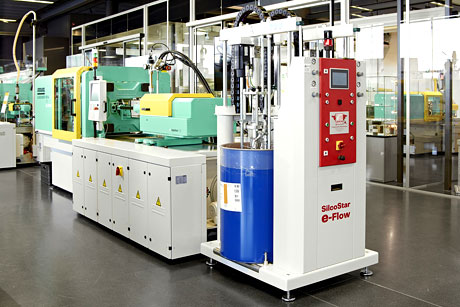It seems that there is an increasing trend for more and more businesses to hire Apprentices as part of their workforce. What is the value of an Apprenticeship Program and what does it practically mean? We talked to our Systems Project Manager who is responsible for the 2KM Apprenticeship Program to learn more.
Why should a business hire an Apprentice?
 The trend for hiring apprentices declined significantly in the 80’s and 90’s and was still out of favour in the 00’s. At 2KM I think in the current economic climate more businesses look into hiring apprentices again mainly for cost saving reasons. we have always been struggling to find competent engineers, and the best engineers we have come through an apprenticeship scheme. Moving to new premises as well as taking on extra work and larger jobs forced us to look for new staff. Yet, again, we were disappointed with the people available so approached the local college to see what skills they could offer.
The trend for hiring apprentices declined significantly in the 80’s and 90’s and was still out of favour in the 00’s. At 2KM I think in the current economic climate more businesses look into hiring apprentices again mainly for cost saving reasons. we have always been struggling to find competent engineers, and the best engineers we have come through an apprenticeship scheme. Moving to new premises as well as taking on extra work and larger jobs forced us to look for new staff. Yet, again, we were disappointed with the people available so approached the local college to see what skills they could offer.
Initially the choice was disappointing but two of the students who applied gave us a call and seemed really keen to work. You have to reward people who have a willingness to work and want to learn so we took a chance and interviewed them. Both students came across as more mature than expected and both seemed enthusiastic with the machines. They were also willing to start at the bottom and explore the progression that we could offer in the company.
What are the challenges and how can we overcome them?
Our biggest challenge is to give solid and structured training. In a small company there is always a lot of work to do and not enough people to do it, so finding the time to stop jobs and give formal training is always going to be a big problem. Giving training as part of building machines can lead to mistakes been made at the expense of machine quality were 2KM ‘s reputation can suffer and the customer gets an inferior machine. So we have to closely monitor the work they do, check the quality and generally coach them on the processes they should be using.
I have been working with the apprentices to show them how to use the equipment we have, so that when they approach a new job they can come up with a clear plan of how they will complete a task. This gives them free thinking, makes them use their own judgement and will allow them to make decisions on their own in the future. After they come up with a plan we discuss the pros and cons and decide on the correct way to move forward.
How can we get the best out of both parties?
There has to be a reward system in place for both the apprentice and the employer. The reward for the apprentice is praise for doing a good job and monetary reward on a regular basis to show that the work done is beneficial for the company. The reward for the company is in the form of good quality work leaving the factory and the pride in knowing that you have contributed to teaching people skills they will remember for the rest of their lives. The people who have trained the apprentices can genuinely put their hand on their heart and say “I helped and contributed”. This kind of personal pride benefits the company since people feel part of a team and value their work more.
Any final thoughts/advice to the companies thinking of hiring one or more apprentices?
From our experience, I think that other companies need to take a leap of faith regarding apprentices, employ any that appear to be willing to learn and then hope they can be moulded to suit their business. Waiting for the “perfect” candidate is simply not realistic. The continued growth of an apprentice is equal to the amount of work you are willing to put in.



